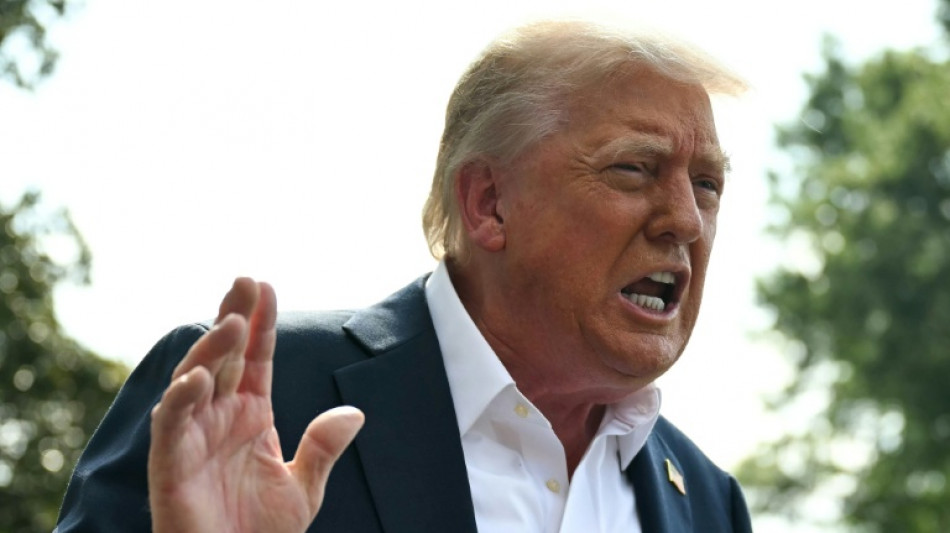

EU still seeks Trump trade deal -- but readies retaliation
The EU on Monday moved to firm up possible retaliation if US President Donald Trump hits the bloc with 30-percent tariffs, while insisting it was still looking to clinch a deal by August 1.
Trade chief Maros Sefcovic said Brussels was putting forward a list of US goods worth 72 billion euros ($84 billion) that could be targeted with levies if talks fail.
"The EU, as you know very well, never walks away without genuine effort, especially considering the hard work invested, how close we find ourselves to making a deal," he said after meeting EU ministers.
"But it takes two hands to clap."
Trump threw months of painstaking talks into disarray on Saturday by announcing he would hammer the bloc with the sweeping tariffs if no agreement is reached by August 1.
Sefcovic, the EU's pointman with Washington, said he planned to speak to US counterparts later Monday to try to get negotiations back on track.
EU ministers roundly backed the push to try to salvage the talks -- which Brussels believed were on the cusp of success last week -- and to keep on trying to find an accord.
But they also agreed to move ahead with readying a retaliation if Trump makes good on his threat.
"There was a total unified position among the ministers that we should be ready to respond if needed," said Denmark's foreign minister, Lars Lokke Rasmussen, whose country holds the EU's rotating presidency.
"If you want peace, you have to prepare for war."
Brussels has been working on the list of US imports it could target since May -- landing on the 72-billion-euro package after lobbying from member states.
The EU has already prepared a separate list of US imports worth 21 billion euros that it is ready to target over earlier tariffs from Trump on steel and aluminium.
European Commission chief Ursula von der Leyen delayed rolling out those measures on Sunday -- a day before they were set to kick in -- as a sign of goodwill towards Washington.
- 'No taboos' -
Before heading into the meeting with EU ministers, Sefcovic warned that if Trump did impose 30-percent tariffs it would make trade "almost impossible" between the two economic giants.
"Practically it prohibits the trade," he said.
EU nations -- some of which export far more to the United States than others -- have sought to stay on the same page over how strong a line to take with Washington in order to get a deal.
France's trade minister Laurent Saint-Martin said retaliation plans should be drawn up with "no taboos", adding that the weekend's setback called for a rethink of the bloc's tactics.
"If you hold anything back, you are not strengthening your hand in negotiations," he said at the Brussels talks. "Obviously, the situation since Saturday requires us to change our strategy."
- Deals and duties -
Since returning to the presidency in January, Trump has unleashed sweeping stop-start tariffs on allies and competitors alike, roiling financial markets and raising fears of a global economic downturn.
But his administration faces pressure to secure deals with trading partners after promising a flurry of agreements.
So far, US officials have only unveiled two pacts, with Britain and Vietnam, alongside temporarily lower tit-for-tat duties with China.
The EU tariff is markedly steeper than the 20 percent levy Trump unveiled in April -- but paused initially until mid-July.
Thomas Byrne, the minister for Ireland whose pharmaceutical industry puts it on the front line of Trump's trade war along with industrial powerhouse Germany, called for Europe to "work our hardest" for a deal before August 1.
"That gives us certainty, it protects investments, it protects jobs," he said.
D.Sinha--MT




